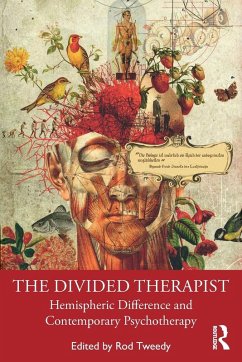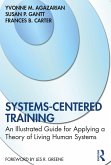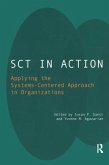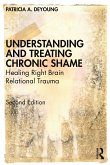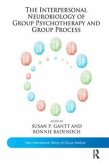This important new book explores the nature of the divided brain and its relevance for contemporary psychotherapy. Citing the latest neuroscientific research, it shows how the relationship between the two hemispheres of the brain is central to our mental health, and examines both the practical and theoretical implications for therapy.
Disconnections, dissociations, and imbalances between our two hemispheres underlie many of our most prevalent forms of mental distress and disturbance. These include issues of addiction, autism, schizophrenia, depression, anorexia, relational trauma, borderline and personality disorders, psychopathy, anxiety, derealisation and devitalisation, and alexithymia. A contemporary understanding of the nature of the divided brain is therefore of importance in engaging with and treating these disturbances.
Featuring contributions from some of the key authors in the field, The Divided Therapist suggests that hemispheric integration lies at the heart of the therapeutic process itself, and that a better understanding of the precise mechanisms that underlie and enable this integration will help to transform the practice of psychotherapy and psychoanalysis in the twenty-first century. The book will be essential reading for any therapeutic practitioner interested in how the architecture of the brain informs and e ects their client's issues and challenges.
Disconnections, dissociations, and imbalances between our two hemispheres underlie many of our most prevalent forms of mental distress and disturbance. These include issues of addiction, autism, schizophrenia, depression, anorexia, relational trauma, borderline and personality disorders, psychopathy, anxiety, derealisation and devitalisation, and alexithymia. A contemporary understanding of the nature of the divided brain is therefore of importance in engaging with and treating these disturbances.
Featuring contributions from some of the key authors in the field, The Divided Therapist suggests that hemispheric integration lies at the heart of the therapeutic process itself, and that a better understanding of the precise mechanisms that underlie and enable this integration will help to transform the practice of psychotherapy and psychoanalysis in the twenty-first century. The book will be essential reading for any therapeutic practitioner interested in how the architecture of the brain informs and e ects their client's issues and challenges.
"A magnificent achievement." - Professor Jeremy Holmes, psychiatrist and author of Exploring in Security: Towards an Attachment-Informed Psychoanalytic Psychotherapy and The Search for the Secure Base: Attachment Theory and Psychotherapy
"Fascinating - both lucid and intriguing." - Adam Phillips, psychoanalyst and author of Becoming Freud: The Making of a Psychoanalyst and Attention Seeking
"Wonderful - a really important book revealing the missing key to understanding psychopathology and psychotherapy." - Dr Phil Mollon, psychoanalyst and author of Shame and Jealousy: The Hidden Turmoils; Psychoanalytic Energy Psychotherapy; and The Fragile Self: The Structure of Narcissistic Disturbance
"This book explores and explicates insights that are fundamentally important to the practice of therapy today. Really fascinating." - Robert Snell, analytic psychotherapist and author of Uncertainties, Mysteries, Doubts: Romanticism and the Analytic Attitude
"Fascinating - both lucid and intriguing." - Adam Phillips, psychoanalyst and author of Becoming Freud: The Making of a Psychoanalyst and Attention Seeking
"Wonderful - a really important book revealing the missing key to understanding psychopathology and psychotherapy." - Dr Phil Mollon, psychoanalyst and author of Shame and Jealousy: The Hidden Turmoils; Psychoanalytic Energy Psychotherapy; and The Fragile Self: The Structure of Narcissistic Disturbance
"This book explores and explicates insights that are fundamentally important to the practice of therapy today. Really fascinating." - Robert Snell, analytic psychotherapist and author of Uncertainties, Mysteries, Doubts: Romanticism and the Analytic Attitude

